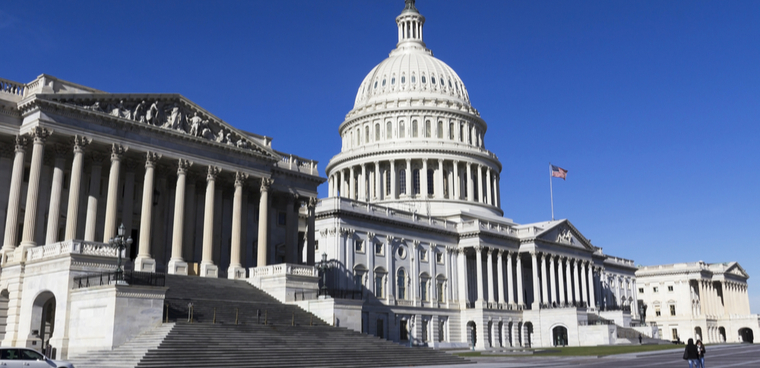OTA revival hits a wall
Despite a big push from a dedicated group determined to bring back the Office of Technology Assessment, it's unclear whether many in Congress are prepared to expend political capital on the issue.

Scientifically oriented members of Congress and think tankers from across the ideological spectrum have been pushing in a low-key but determined way over the past several years to revive the shuttered Office of Technology Assessment (OTA), the congressional agency that once advised committees and members on new developments in technology.
While there appears to be broad support for enhancing the quality and quantity of homegrown tech assessment in the halls of Congress, at a Dec. 5 hearing of the House Committee on Science, Space and Technology, only a few members seemed committed to a full-blown revival of the OTA, which in its prime operated with a budget of more than $30 million and delivered hundreds of assessments to members and committees between 1972 and 1995.
Witnesses at the hearing said lawmakers need improved access to non-partisan scientific information on climate change, cybersecurity, artificial intelligence, 5G deployment, data privacy and other key issues that could -- and perhaps should -- be the subject of legislative action in coming years. But how that information comes to them is an open question.
A congressionally commissioned report from the National Academy of Public Administration released in October spotlighted gaps in the ability of lawmakers to access and consult with outside science and technology advisers but suggested that enhanced offerings from the Government Accountability Office and the Congressional Research Service (CRS) -- some already in the works -- could meet the need.
That report recommended adding a new Office of the Congressional S&T Adviser to help members, committees and offices absorb and leverage assessments and another new body to act as a tech assessment coordinator to avoid duplication among CRS, GAO and others.
Michael McCord, one of the authors of the NAPA report and a former senior defense official, said that the reality that Congress chose to eliminate OTA and has not to date reopened it played a role in report's recommendations.
"You look at the fact that Congress has consistently not found a consensus around reinstating OTA. That kind of viability question is part of the equation," McCord said.
Rep. Sean Casten (D-Ill.), a freshman congressman who promised to restore OTA on the campaign trail, questioned whether the NAPA report should have evaluated the politics of the issue.
"Dropping the OTA didn't save the government a dime," Casten said, "but it probably made us dumber …. and ever more dependent on lobbyists for information."
In a response to the NAPA report, policy analysts Zach Graves of the Lincoln Network and Daniel Schuman of Demand Progress also suggested that NAPA may have taken legislative politics too much into account when formulating its recommendations and ignored OTA's institutional history.
"The NAPA report does not consider how a legislative agency's governance can be structured to shield S&T analysts from political criticism. OTA was governed by a bipartisan, bicameral board that signed off on all technology assessments and acted as a barrier against attacks on the agency. While this structure ultimately failed to prevent the defunding of OTA, it did create a base of bipartisan support that nearly saved it," they wrote.
Committee ranking member Rep. Frank Lucas (R-Okla.), who was in Congress when the OTA was defunded, said that many Republicans "saw the OTA as duplicative of other resources [and] believed that the office had strayed from its intended purpose of being an unbiased, non-partisan organization."
Rep. Bill Foster (D-Ill.), one of the lawmakers working to secure funding for an OTA revival and the holder of a Ph.D. in physics from Harvard, argued that science has stayed consistent but that lawmakers are more likely to treat research like just another political football.
Foster noted that the Defense Department this summer eliminated a multibillion dollar missile defense program due to technical failures. Foster said that OTA, which controversially weighed in on the proposed missile defense program dubbed "Star Wars" in the Reagan administration, could have let Congress know during the debate about authorizing such systems that they weren't likely to be successful -- before spending billions of dollars on their development and testing.
"This is the problem: the scientific reality is that these kind of systems -- midcourse interceptors -- just cannot work for fundamental physics reasons," Foster said. "And if you make that correct scientific point, it is interpreted as a partisan political point."
NEXT STORY: Quick Hits






